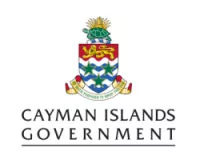Grand Cayman, 25 February — The Department of Environment (DoE) and Vulcan Inc., on behalf of Paul G. Allen, the owner of the M/Y Tatoosh, have agreed on the principles and parameters of a jointly administered emergency restoration plan, which has the immediate focus of helping to speed up the recovery of the damaged site, and to minimise or prevent ongoing losses and harm to the injured coral habitat.
The plan, which was concluded after close collaboration between the DoE and Vulcan representatives, includes the following activities, the first of which already has been completed by DoE staff and Polaris Applied Sciences Inc., a coral reef restoration firm that has been contracted by Vulcan.
- Triage the affected corals: Upright, uncover, secure and move viable corals to safe locations, while work on stabilising the reef structure is completed.
- Stabilise or remove the larger rubble accumulations, to prevent continued and future damage to nearby living and established resources from the impacts of rubble movement. As much rubble as possible and to the extent practicable will be incorporated onsite, to recreate and retain the original reef structure.
- Recreate the lost structure, or reduce the unnatural appearance of scraping or scarring.
- Rescue and reattach as much living coral and other live biota as practicable, to reduce the time for a full site natural recovery and restore ecosystem services.
- Monitor the site to determine the success of the restoration effort in the months and years following completion.
On Tuesday, 1 March, the Polaris team are expected to commence work on implementing the remainder of the emergency restoration plan. Oversight of the restoration activities will be carried out by Dr Harold Hudson, a world leader in restoration of coral habitats and formerly of NOAA, who will be engaged by Vulcan but will report to both Vulcan and the DoE. The monitoring of the success of the restoration effort will be carried out under the auspices of the DoE.
The DoE and Paul G. Allen are deeply committed to ocean health and conservation. Both the DoE and Vulcan have worked hard to ensure that this agreement reflects the best international standards for restoration of coral habitats. They look forward to working together on the restoration. No further public statements are planned until the remediation work is completed.
The content of this article is intended to provide a general guide to the subject matter. Specialist advice should be sought about your specific circumstances.


